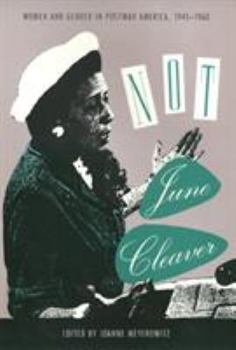Not June Cleaver: Women and Gender in Postwar America, 1945-1960
(Part of the Critical Perspectives on the Past Series)
Select Format
Select Condition 
Book Overview
In the popular stereotype of post-World War II America, women abandoned their wartime jobs and contentedly retreated to the home. These mythical women were like the 1950s TV character June Cleaver, white, middle-class, suburban housewives. Not June Cleaver unveils the diversity of postwar women, showing how far women departed form this one-dimensional image.
This collection of fifteen revisionist essays charts new directions in American women's history and provides connections to scholarship that, until recently, has focused primarily on the years before 1945 and after 1960. The contributors explore the work and activism of postwar American women and also point to the contradictions and ambiguities in postwar concepts of gender.
Including examinations of such aspects of postwar women's history as the arrival of Chinese women immigrants in New York City; women's changing presence in the labor force and in union organization; and the precarious lives of women abortionists, lesbians, and single mothers, the authors effectively demonstrate how postwar women's identities were not only an expression of their gender but also of their class, race, ethnicity, sexual orientation, religion, occupation, and politics.





